Discovering Uriah's Notebooks: A Soldier's Faith and Legacy
After the mourning period for her husband Uriah, who fell in Gaza, Avital found his notebooks filled with writings and messages of faith. She now shares them to uplift others.
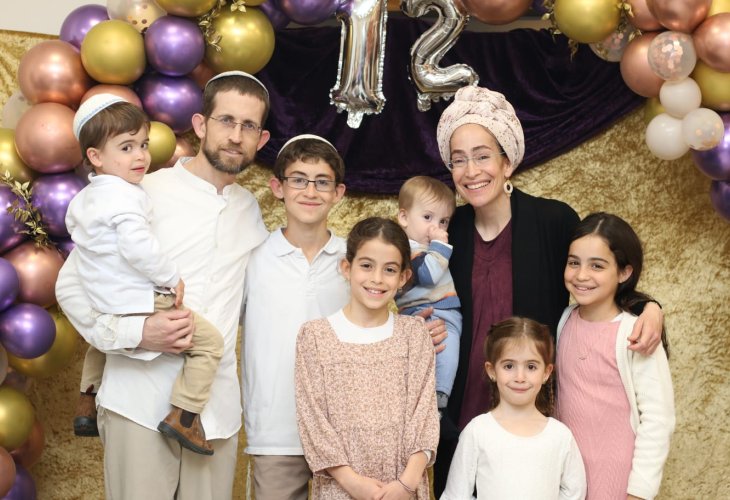 Uriah's family
Uriah's familyWhen Avital Mish received her late husband Uriah's belongings from the army after his death in Gaza, she found the Mishna he carried everywhere. "Uriah was part of a 'Mishna study group'", Avital explains. "Each member was given a text to study for a month, and they would celebrate its completion together. Uriah's text had a bookmark with the phrase: 'Shedding materialism to embrace the life of the spirit within me'."
As Avital quotes these words, her voice trembles. "I saw the exact same sentence written in one of Uriah’s notebooks discovered shortly after he passed away. The notebook was filled with reflections, thoughts, and insights from as far back as 2018, including the words on his bookmark. It shows Uriah carried this key concept of seeking spiritual life and shedding materialism for over 15 years. What better way to shed materialism than to sacrifice one’s life for sanctifying Hashem's name and for the people of Israel?"
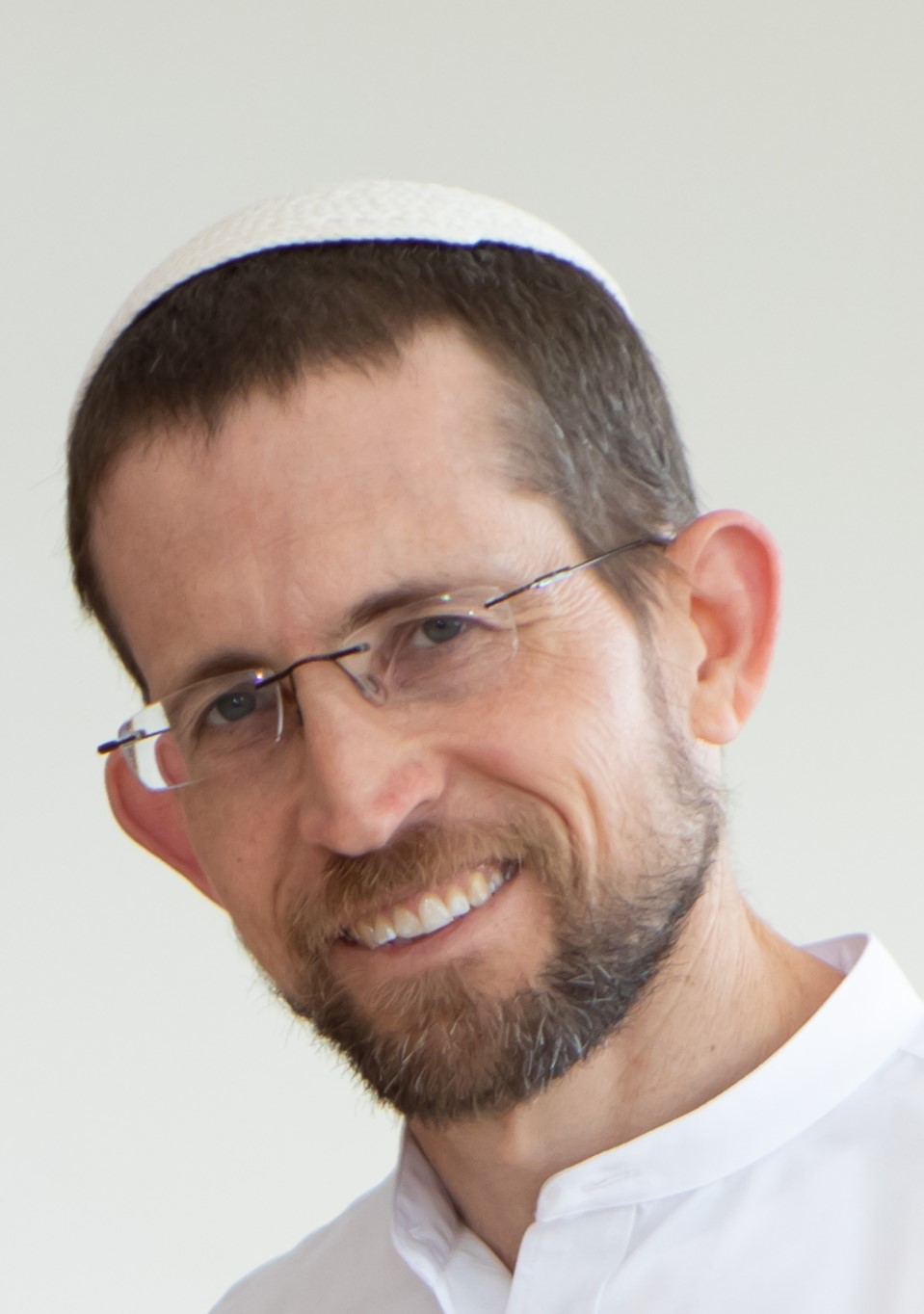 Uriah Mish
Uriah Mish"Was Not Supposed to Enter"
Uriah was 41 when the War of Iron Weapons broke out. He wasn’t supposed to be drafted, given he was a father of six, but those who knew him understood he wouldn’t pass on the call to serve.
Avital recalls that a year prior, Uriah received a letter from the army stating he was released from reserve duty unless he volunteered. "We hesitated at first," she remembers. "I had just given birth to our youngest, and the house hadn’t settled yet. The thought of sending my husband to reserves seemed impossible, staying home alone with the kids. But it was just two training sessions a year, so Uriah saw it as important, and we decided to sign up for another volunteering year."
Like all of Israel, they didn’t foresee a war. "On Simchat Torah, by 1 PM, Uriah and his platoon were called up," Avital says. "At first, they stayed on base for weeks, then entered Gaza. My feelings in that first week were challenging and overwhelming. This wasn’t what I intended when I signed the papers. I agreed to five training days twice a year, not a war with no end in sight. It took time, but I realized Uriah belonged there, and while I was terrified, I was also proud and even grateful."
Weeks later, Uriah, using their agreed code words, informed Avital they were entering Gaza. "During that call, he mentioned he was sorting out paperwork to continue fighting, as the voluntary year was ending in two months. That was our penultimate conversation. The last was that same day, in the evening, when I learned they were surrendering their phones and entering Gaza. Two days later, we were informed of his death."
Avital pauses, then adds, "Originally, Uriah wasn't supposed to be in the tank that got hit. He had served as the commander's driver for years. When he arrived on Simchat Torah, the commander took him aside and said, 'I’m glad you extended your service, but you have six kids at home—I can’t risk you. You’ll be on the replacement team.' Uriah told me the commander was wrong, worrying more about the younger, unmarried soldiers. But the commander didn’t ask, so Uriah was indeed on the replacement team."
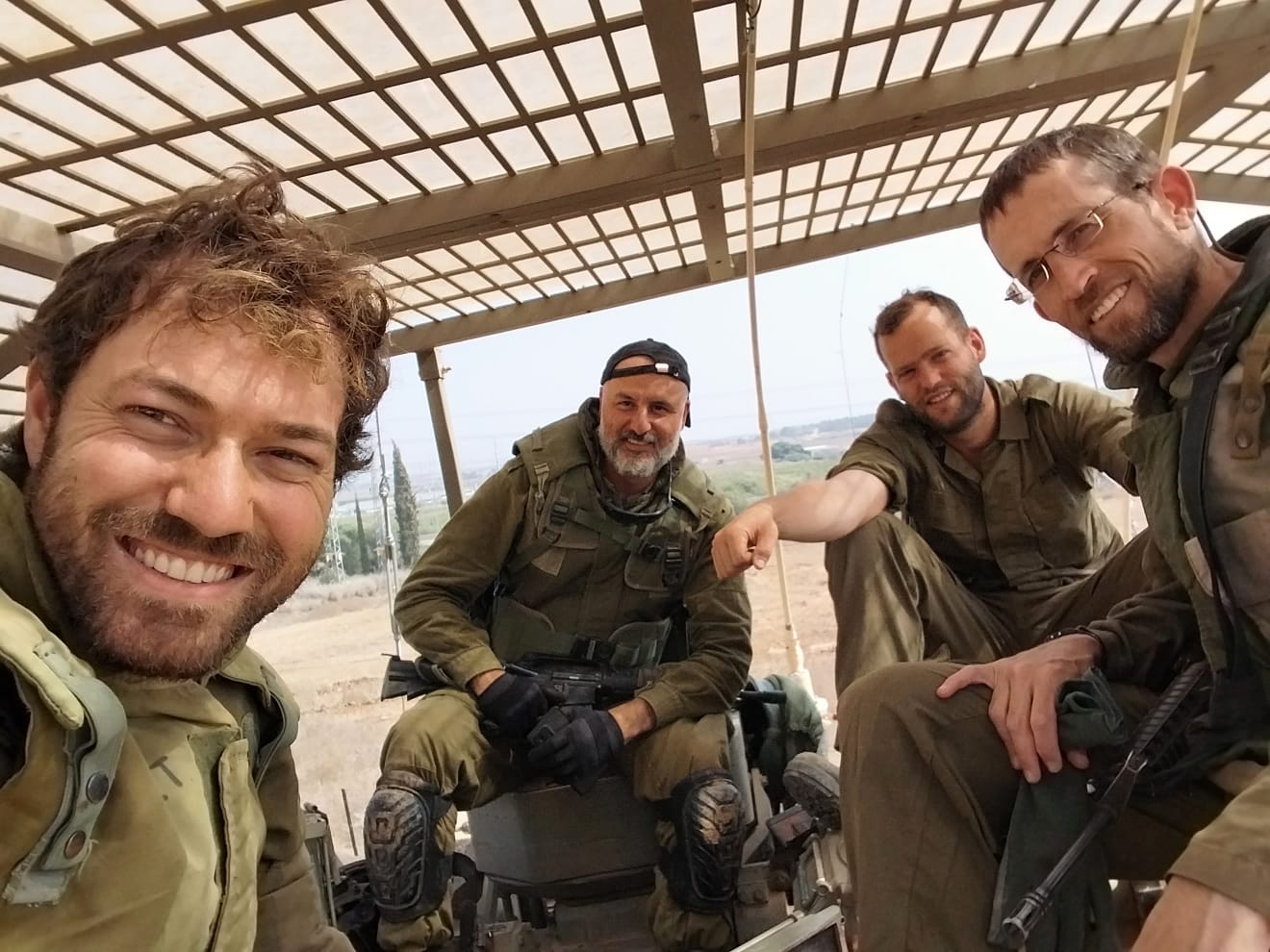 With the tank crew. The young man beside him, Yoni Brand, also perished.
With the tank crew. The young man beside him, Yoni Brand, also perished.Avital recounts that on the day they entered Gaza, the soldier assigned as the commander's driver felt unwell, and the commander asked Uriah to step in. "Uriah was supposed to guide the incoming soldiers, helping them load equipment," says Avital. "When the commander suggested Uriah join the mission, Uriah replied, 'We’ll figure out how to get your gear from the base.' To everyone’s surprise, Uriah produced the gear from behind his back, proving he was prepared for entering if needed."
So Uriah entered Gaza in the tank. Avital notes that the commander later shared how Uriah, during battle, worried they’d soon discharge him because he hadn’t completed the paperwork for another service year, which was about to end. Amazingly, amidst the fighting, Uriah’s biggest concern wasn’t dying or exhaustion but being pulled out due to bureaucracy."
Documenting to Fortify
Uriah left Avital and their six children, aged one to 14, with chilling mementos—notebooks filled with thoughts and insights he penned over the years.
"I knew about the notebooks even before we married," Avital notes. "Uriah showed me a poem he wrote once, but we never discussed them again. After his death, I was determined to find and read them for the first time."
Searching for the notebooks was one of Avital's first tasks after mourning, and she was astounded by the volume of writings. "I found notebooks from his army service and the time after," she elaborates. "Reading them was overwhelming, so I decided to choose a piece daily, design a simple graphic for it, and share it on my status and family group till the memorial."
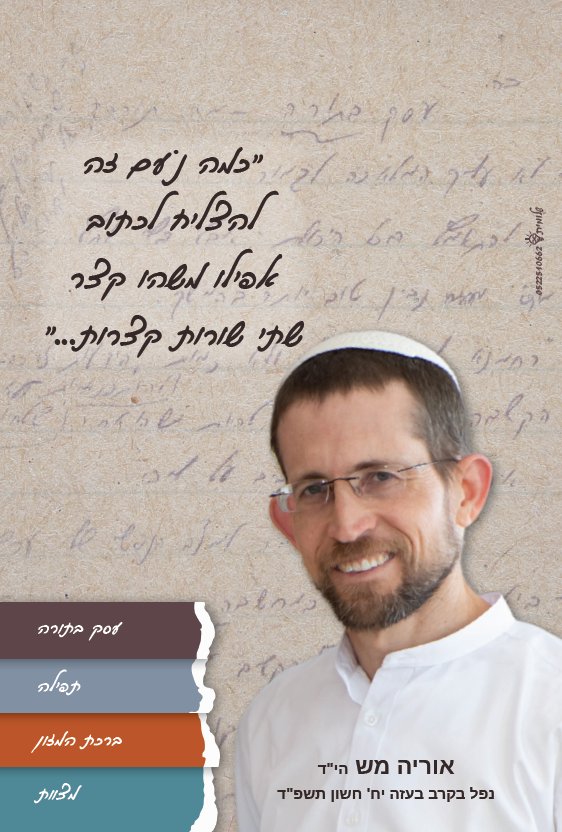
Avital shared Uriah’s writings, and responses poured in. "I realized not only did they strengthen me, but they also empowered many others. I continued digging for more, discovering a special notebook divided into prayer, Torah, blessings, and mitzvot. These were labeled on the cover like bookmarks with the phrase: 'Even when you read, don’t stress to read it all'. I believe he meant it for himself, yet it speaks to readers, as if he knew someone would one day read them."
Why didn’t he share the notebooks all these years?
"Uriah was known for his quiet, humble nature, avoiding publicity. When I first shared his writings, I felt as if he’d eventually confront me. But now, I see the tremendous inspiration his words provide on our Facebook page, statuses, and the printed notebooks, understanding their importance and need to be shared."
Was there something he wrote that moved you in particular?
"There are many moving entries, but one stands out—a summary from a rabbi visiting their yeshiva. Uriah quoted the rabbi: 'Engaging with death risks sinking into sadness and abandoning life. While death seems like a final 'no,' it's false; true death is the intensification of life, like the righteous who grow greater in death than life.' This struck me significantly, encouraging strength and avoiding sorrow and stagnation, the very lie of death."
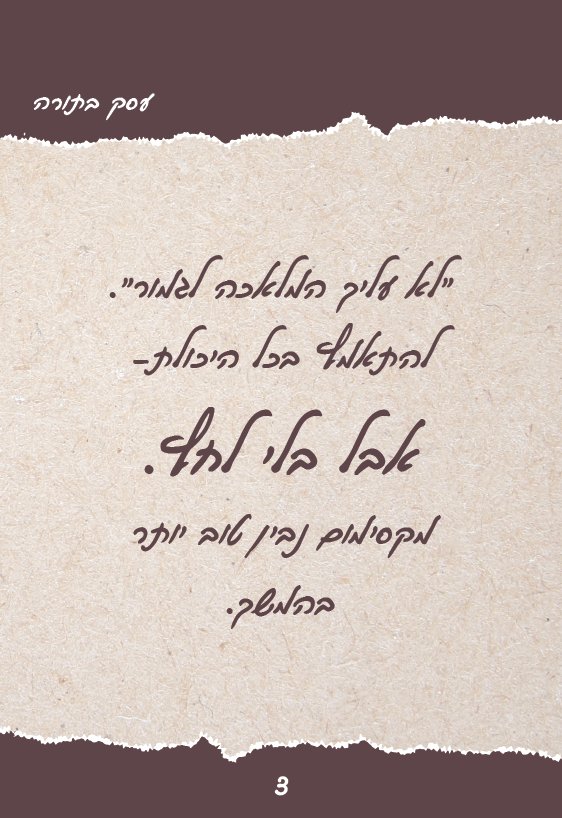
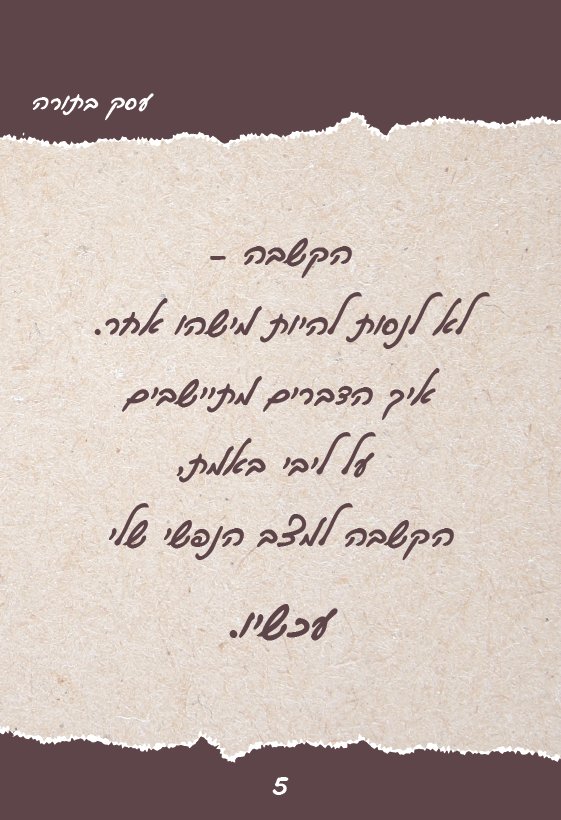
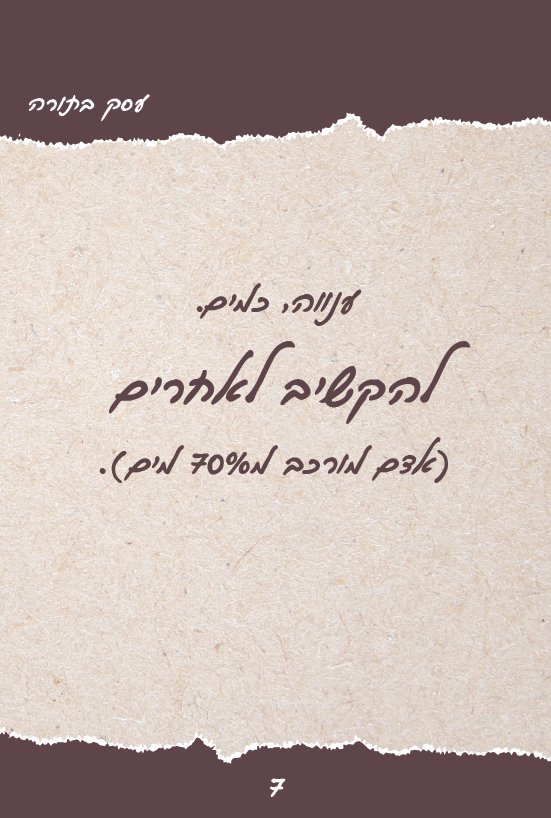
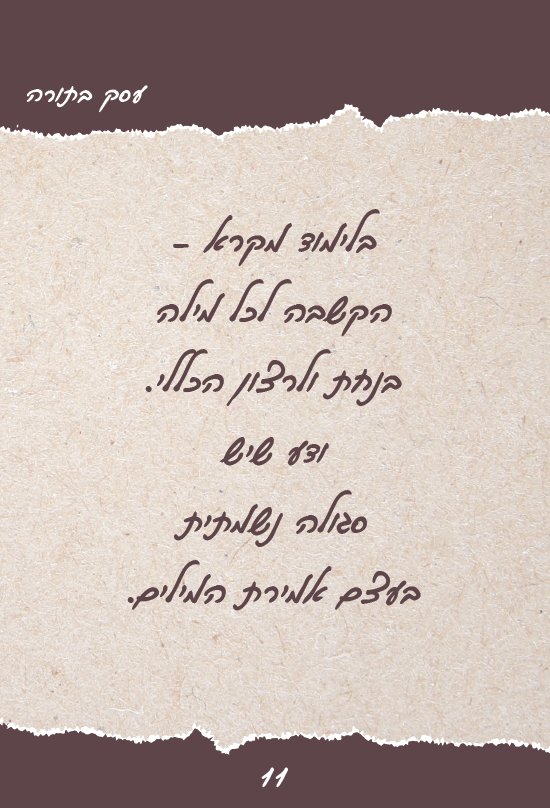
"Beyond the profound insights in each notebook, they are a tremendous gift for us," Avital adds. "Uriah’s notebooks and writings accompany and give our family strength, making it feel as though he didn’t just leave us but left behind messages. The reason I compiled, printed, and shared these insights widely is so others feel the same empowerment. It's astonishing how people, even those not religiously affiliated, are moved by Uriah's words of faith. They find strength in them. When people ask how I manage to document, design, and post these, I say it's engaging with his writings that empowers me, and that’s the truth."

